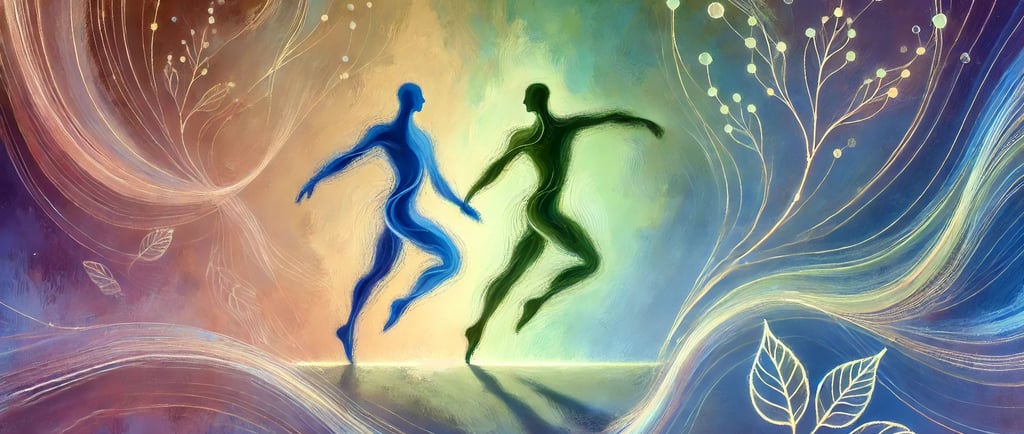The Dance of Existence
One personal view of what existential therapy might add to human living
John McNeil Scott


Human existence is an intriguing and delicate dance, a journey marked by a balance that is never quite stable. The dance of human living pressed towards the future, even as the circumstances of life cause us anxiety. Anxiety about the nature of our lives, about possibilities and limits, is woven into the stuff of our being. We are living experiments in being, each one unique and unrepeatable.
Every human life can be seen as an epic struggle to fully be. Every life - in its own way - calls for us to live heroically in the face of unavoidable human anxieties and limitations.
Human Beings are Curious and Self-Questioning: Uniquely, humans are compelled to ask "why" and "how," driven by a curiosity that transcends mere survival. This questioning nature is rooted in our relationship with language. Martin Heidegger says that the primary form of language is interrogative, with declarative forms being secondary. This continuous questioning reflects our perpetual pursuit of understanding and meaning.
Existence as Coexistence: Human existence is inherently social; it is co-existence. We cannot exist in isolation. Our humanity is validated through our interactions with others, beginning from infancy. This existential validation is mutual and equimutual, manifesting through gaze, touch, and speech. Existential therapy aims to harness these interactions to address the disturbances in existence.
What is Existential Therapy?: Existential therapy focuses on the individual's existence rather than treating them as a subject over against objects. It reflects a care for existence, conducted in a setting that preserves the autonomy of the individual. This therapy emphasizes existential validation, where both therapist and client engage in a mutual process of recognising and affirming each other's existence.
Some Personal Principles of Existential Therapy
Existence and Time: Existence is temporal, intertwined with the individual's lived time, which is unique and often non-linear. The therapist seeks to understand and align with the patient's lived time.
Existential Crisis and Therapy: Existential crisis arises when an individual's world changes in a way they cannot accept, leading to suffering. Existential therapy does not seek to change behaviour except through helping a person to understand their own values and meaning in their world at different levels of life.
Existential Heroism: To live authentically, neither avoiding the truths of our existence nor being overcome by them is ‘heroic’. It rewards with joy in our own sense of being-in-the-world, but requires a certain type of courage too.
The Aim of Existential Therapy
The ultimate goal of existential therapy is to help a person face their own existence and to find a joyful and self-determined authenticity. This often involves helping a person to see how their world has changed and to reconnect with their lived time. The therapist provides a unique space where the person's existence and experience is taken seriously, allowing them to rediscover their voice and visibility in a changed world.


